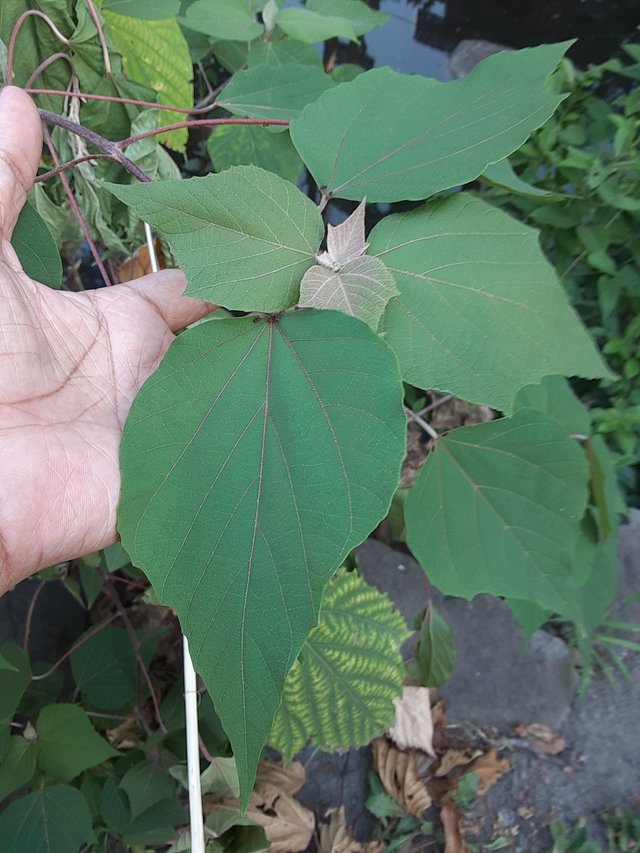
Mallotus japonicus is a deciduous shrub or small tree that is native to Asia. It is also known as the Japanese silk-oak, Japanese tallow tree, and food wrapper plant.
The leaves of Mallotus japonicus are large, alternate, and ovate to deltoid. They are green in color and have a hairy texture. The leaves are edible and have been used in traditional Chinese medicine for centuries.
The leaves of Mallotus japonicus contain a number of beneficial compounds, including rutin, quercetin, and kaempferol. These compounds have antioxidant, anti-inflammatory, and anti-cancer properties. The leaves have also been shown to have antibacterial and antifungal properties.
There are a number of ways to use the leaves of Mallotus japonicus. They can be eaten fresh, cooked, or dried. The leaves can also be made into a tea or tincture.
Here are some of the potential benefits of using the leaves of Mallotus japonicus:
- Antioxidant protection: The antioxidants in the leaves can help protect cells from damage caused by free radicals.
- Anti-inflammatory properties: The anti-inflammatory properties of the leaves can help to reduce inflammation in the body.
- Anti-cancer properties: The compounds in the leaves may have the ability to kill cancer cells or prevent them from growing.
- Antibacterial and antifungal properties: The leaves may have the ability to kill bacteria and fungi.
- Improved gut health: The leaves may help to improve gut health by promoting the growth of beneficial bacteria.
It is important to note that more research is needed to confirm the potential benefits of using the leaves of Mallotus japonicus. If you are considering using the leaves for medicinal purposes, it is important to talk to your doctor first.
Here are some safety considerations to keep in mind when using the leaves of Mallotus japonicus:
- High doses of the leaves may be toxic. It is important to follow the recommended dosage when using the leaves.
- The leaves may interact with certain medications. If you are taking any medications, it is important to talk to your doctor before using the leaves.
- The leaves may cause allergic reactions in some people. If you have any allergies, it is important to test the leaves on a small area of skin before using them on a larger area.
Ref.:
 |  |
Upvoted! Thank you for supporting witness @jswit.
Downvoting a post can decrease pending rewards and make it less visible. Common reasons:
Submit